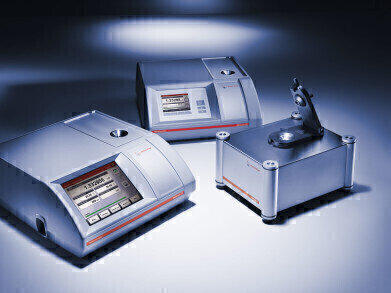Analytical Instrumentation
How to Take Off Safely with New Refractometers
Oct 27 2014
Ice and jet fuel: a dangerous combination. On cold winter days and at high altitudes excess water present in jet fuel will freeze and can lead to accidents. How can this be avoided?
The capacity of jet fuel to hold water diminishes at cruising altitude, where the temperature is around -50 °C. Separating water from the fuel may freeze in fuel lines or filters, thereby blocking the flow of fuel and shutting down the engine. One possibility to prevent this is the addition of fuel system icing inhibitors to jet fuel, such as diethylene glycol monomethyl ether (DiEGME). They are mandatory in military aircraft fuels and used in commercial civil aviation fuels depending on routes, flight lengths and season. The addition of 0.10 % to 0.15 % DiEGME, for example, lowers the freezing point of water to -43 °C.
But how can this concentration be controlled in order to ensure a safe flight? Abbemat refractometers from Anton Paar determine the concentration of DiEGME in aviation fuels according to the international ASTM standard D5006. The Abbemat refractometers directly show %Vol of DiEGME and are fully automatic and user-independent. Take off safely with the Anton Paar refractometers.
Digital Edition
PIN 25.2 Apr/May
May 2024
Safety - Carbon monoxide toxic and flammable gas detection Analytical Instrumentation - Density: A fundamental parameter at critical stages within the petroleum sector - Advancements and...
View all digital editions
Events
May 20 2024 Columbus, OH, USA
May 20 2024 Dubai, United Arab Emirates
May 23 2024 Beijing, China
May 23 2024 Beijing, China
May 28 2024 Tel Aviv, Israel


















